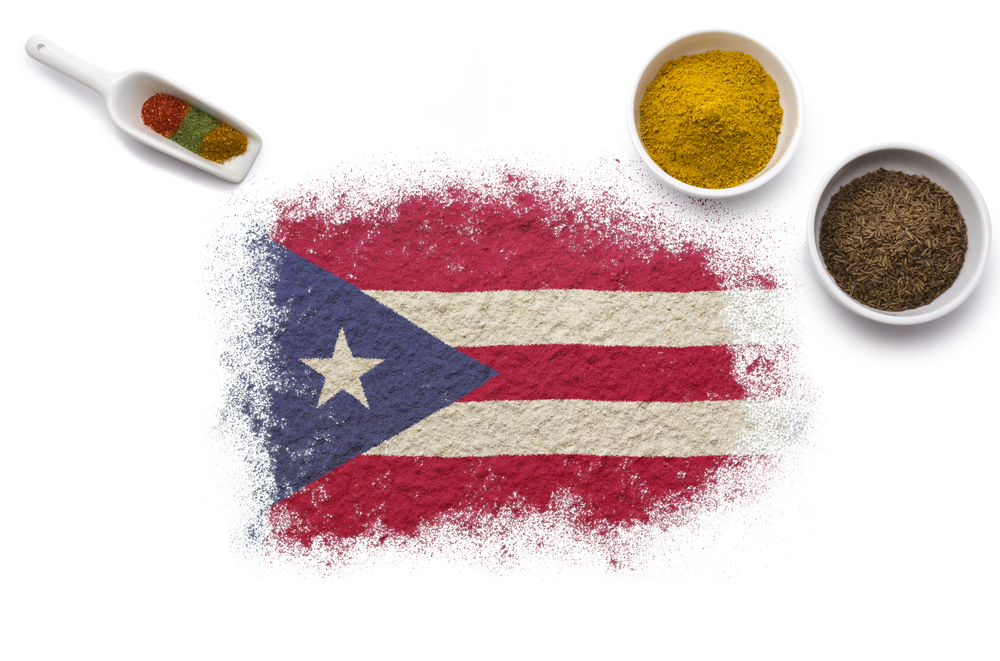Thanksgiving in Not-America

Thanksgiving in Not-America
by Paola Santiago
Thanksgiving doesn’t really make any sense outside of the United States. Here in the U.S. it celebrates the bond between pilgrim and native, a concept that doesn’t really translate across borders. But it’s not an “America-only” tradition, because if we all flashback to our second grade history classes, the U.S. used to be a colonizer, not just of North America, but of neighboring nations — many of which still have an echo of colonization.
Puerto Rico, my charming island, is exactly that. A colonized nation turned U.S. territory. For that reason, we Puerto Ricans celebrate Thanksgiving. (Psst, you can wake up now the history lesson is over.)
So — when I was growing up in Puerto Rico, Thanksgiving was different. On the island, we call Thanksgiving, Dia de Acción De Gracias, which roughly translated, means day of gratitude. Gratitude for our family, the food we eat, our neighbors, and our home – gratitude for our church, our mornings, our nights and gratitude for the very act of living and breathing. It’s funny, I didn’t know about pilgrims until I moved to the U.S. When I was first asked to drawing cornucopias in elementary school I was baffled; don’t get me started on the idolization of a turkey as a holiday symbol! Back home, it would be tragically ironic if we celebrated pilgrims and that’s exactly where it gets weird for me, the transition between the States and my island.
When I moved my mother had a fascination with all things American, and for Thanksgiving — we switched from rice and beans to potatoes and gravy. While she (thankfully) refused to relax her grip on garlic and cilantro, the difference was stark.
We’re very proud of our food and culture and in my very biased opinion, spit roasted pork, smashed, fried plantains and paella are infinitely better foods than turkey and stuffing. Why? Because aside from it tasting so much more complex than green bean casserole (yuck) and stuffing, food is very important to Puerto Rico. It reminds us of our Native, Spanish, and African roots. The recipes are handed down, usually matrilineally, and that connection between ancestors and relatives is as much a part of our culture as is any religious or colonial root.
Still, my family back home was enthralled by my mother’s creations — sweet potato casserole was an obsession and her recipe circulated through our closest family circles. To this day, my mom dresses our dining table with fake autumn leaves and uses a gravy boat shaped like a turkey — these things are not Puerto Rican traditions but instead a mishmash of cultures, intermingling to create something weird and new.
When I call my family back home on Thanksgiving I always ask them, “what did you eat, what did you do?” and they always answer the same they eat and drink and listen to music, spending time with kids or catching up with relatives. When I was young our more distant relatives would join in, bringing instruments to serenade the rest of the family as they danced the night away. It was our way of celebrating each other and welcoming the new holiday season (sans the fall colors and the autumnal gourds.)
Here in the United States, it’s a different kind of good — we watch the Thanksgiving day parade on TV and hang around family until we’re all too stuffed and sleepy to keep talking to each other. And hey, maybe sometimes we’ll decorate the Christmas tree right after dinner. Truthfully, I wish I could have both. As an adult, I struggle with finding a balance between my identity as an American and as a Puerto Rican. We may have citizenship and our culture may have some American touches, but the two identities are not synonymous.
This year, those two identities are much more prominent. Maybe it’s because of the current social atmosphere, the election, or just the fact that as a graduate, I now have to figure out how to carve my own place in the world. But I can say this, my world perspective is a little bigger because I’ll always have one foot in the sand and another on American soil.
BROUGHT TO YOU BY




